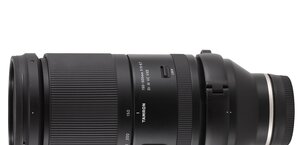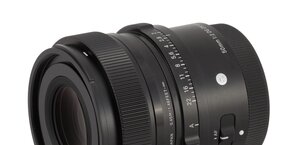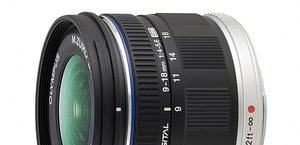A history of Sony Alpha - Minolta AF 85 mm f/1.4 G D versus Sony Zeiss Planar T* 85 mm f/1.4
9. Ghosting, flares and transmission
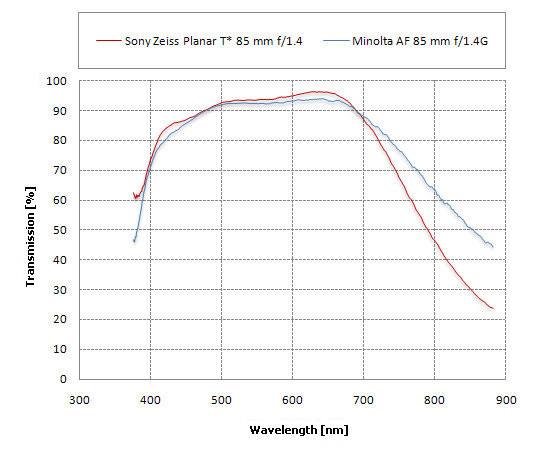 |
The Sony, although its task was more difficult with two more air-to-glass surfaces to cover, fares better here. In the most important range of the almost whole visible spectrum it records the results by 1-3% better than the Minolta. The latter is a tad better only on the red border of the visible spectrum, definitely less important here.
Please Support UsIf you enjoy our reviews and articles, and you want us to continue our work please, support our website by donating through PayPal. The funds are going to be used for paying our editorial team, renting servers, and equipping our testing studio; only that way we will be able to continue providing you interesting content for free. |
- - - - - - - - - - - - - - - - - - - - - - - - - - - - - - - - - - - - - - - - - - - - - - - -
The transmissions of both lenses are high as their build is correct in the sense of damping down unwanted flares so both of them cope well with the work against bright light. In both cases it is really difficult to get any light artifacts what can be seen in the examples below (first two from the Minolta, the next two from the Sony).
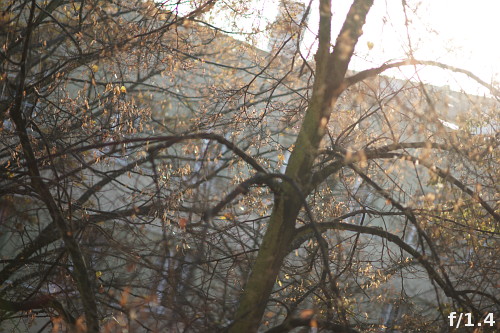 |
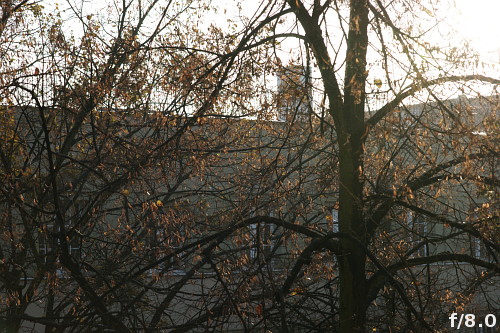 |
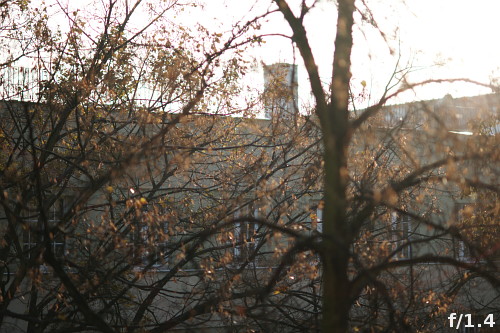 |
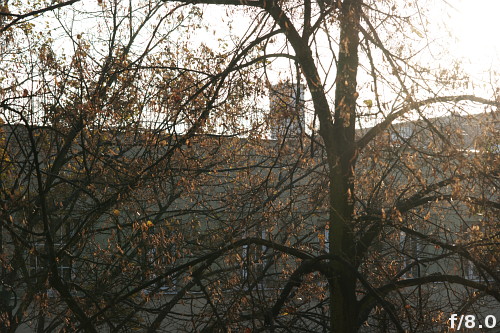 |




